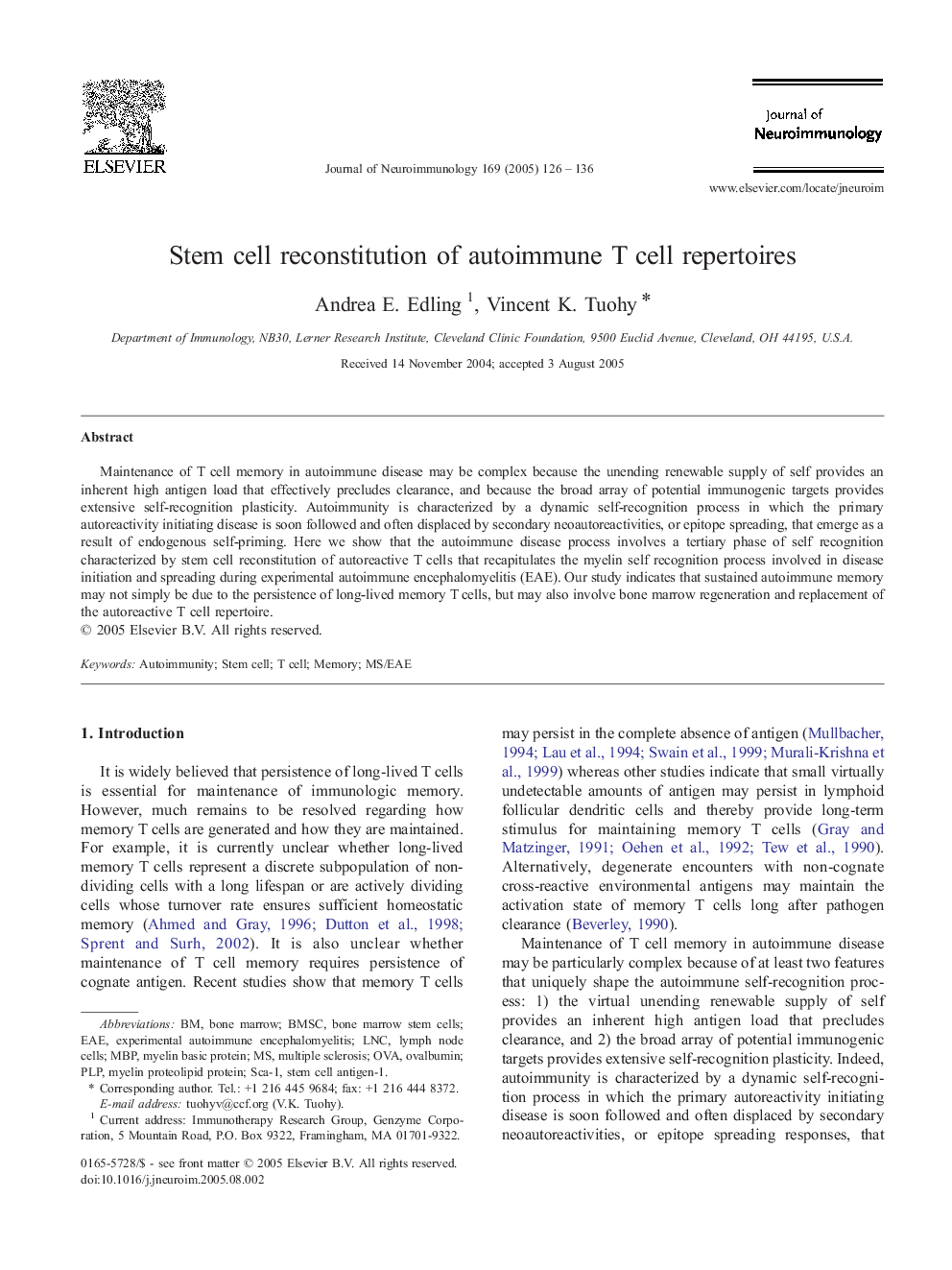| Article ID | Journal | Published Year | Pages | File Type |
|---|---|---|---|---|
| 9194473 | Journal of Neuroimmunology | 2005 | 11 Pages |
Abstract
Maintenance of T cell memory in autoimmune disease may be complex because the unending renewable supply of self provides an inherent high antigen load that effectively precludes clearance, and because the broad array of potential immunogenic targets provides extensive self-recognition plasticity. Autoimmunity is characterized by a dynamic self-recognition process in which the primary autoreactivity initiating disease is soon followed and often displaced by secondary neoautoreactivities, or epitope spreading, that emerge as a result of endogenous self-priming. Here we show that the autoimmune disease process involves a tertiary phase of self recognition characterized by stem cell reconstitution of autoreactive T cells that recapitulates the myelin self recognition process involved in disease initiation and spreading during experimental autoimmune encephalomyelitis (EAE). Our study indicates that sustained autoimmune memory may not simply be due to the persistence of long-lived memory T cells, but may also involve bone marrow regeneration and replacement of the autoreactive T cell repertoire.
Keywords
Related Topics
Life Sciences
Immunology and Microbiology
Immunology
Authors
Andrea E. Edling, Vincent K. Tuohy,
